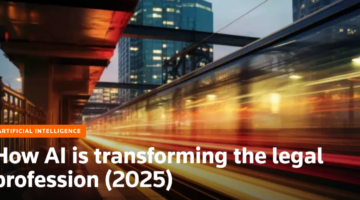 In my daily practice, I am often asked: “Do I really need an immigration attorney? Don’t you just fill out and submit forms?” My short answer used to be that for simple, family-based, and citizenship cases, as long as you know how to follow instructions, you could probably apply without an immigration attorney. These days, however my answer is quite different, even for seemingly simple cases. This is what I tell my clients, which I thought would be helpful for people to know.
In my daily practice, I am often asked: “Do I really need an immigration attorney? Don’t you just fill out and submit forms?” My short answer used to be that for simple, family-based, and citizenship cases, as long as you know how to follow instructions, you could probably apply without an immigration attorney. These days, however my answer is quite different, even for seemingly simple cases. This is what I tell my clients, which I thought would be helpful for people to know.
Immigration law is complicated, both substantively and procedurally. For example, even family-based cases require consideration of the relationship, cross-referenced with the relative’s country of birth, which is further cross-referenced with processing times. In theory, at least for immediate-relative family-based cases (spouse, parents, minor children), things can be less complex, but they are no less tedious. The first step of filing a family-based petition consists of completing Form I-130 and submitting it with evidence of the relationship to the United States Citizenship and Immigration Services (USCIS). Once the I-130 is approved (which can take quite some time to process), many other evidentiary documents must be filed to an agency known as the National Visa Center (NVC) as well as some additional forms. After that, the relevant embassy or consulate sets an interview for the beneficiary of the application. Or, if the beneficiary is already in the United States, a different set of application forms will be filed altogether to USCIS, and, eventually, a local field office in the United States will interview both the beneficiary and the U.S. citizen petitioner.
While the forms may appear to be simple, they can be tricky sometimes. Checking an incorrect box can lead to a rejection or a request for further evidence, or, worse still, a denial. But even if you get the forms right, your case is not guaranteed success. Forms are the vehicle by which USCIS can categorize the case and collect fees. The forms do not win your case; it is the evidence that ultimately makes or breaks a petition.

How AI Is Transforming The Legal Profession (2025)
A survey of professionals reveals the impact of legal work, clients, concerns, and future roles.
What kind of evidence is required? For marriage-based green cards, evidence will include proof of the relationship before and after marriage (such as plane tickets to visit each other, phone records, and further proof of the relationship). The government also needs biographical documents such as birth and death certificates and divorce decrees for all immediate-relative applications. Sometimes, these documents can be challenging to obtain depending on the country in which you were born and your birth era (for example, many births in countries like India are not properly recorded, especially if you are over 50 years old). Challenges also exist in obtaining such documents from Afghanistan, Iran, and other countries. Sometimes USCIS can ask for DNA testing when birth certificates are incomplete. Incomplete birth certificates include certificates where a parent or the child’s name is missing (yes, that happens). Divorce decrees can have different challenges. For example, in the Philippines, the law does not allow for divorce. In these instances, clients have to go through a lengthy and often nearly impossible challenge to get an annulment. I once had a client who couldn’t obtain a divorce decree from South Africa because her ex-husband passed away, and the documents were not found in the local records. In such situations, people need guidance on secondary evidence. When all other avenues fail, a last-ditch effort includes making a lot of legal arguments about why the missing documents should not prevent the case from moving forward and ultimately being approved.
Other difficulties of late have included delayed processing times and the adverse effects on practical life decisions, such as traveling abroad or working. Interviews in the U.S. and at U.S. embassies and consulates worldwide came to a standstill between March and October 2020. Even though some interviews have resumed since then, there are still very limited available appointments. Cases inside the U.S. are also experiencing delays. As such, even “simple” family-based cases are taking over two years to process. But life still goes on, despite immigration delays, and we are seeing the very real consequences. People have lost jobs because their work permit took too long to process because businesses cannot keep jobs open indefinitely. Some people had their applications denied because they got stuck outside the U.S. because their travel authorization took too long to process. There are no doubt many other examples of the hardships people have experienced.
So these days, my advice to my clients is that immigration lawyers are not there just to fill out forms and file your case for you. We are also here to navigate the twists and turns that happen when policies and circumstances change. Our experiences and expertise allow us to navigate an opaque and broken system, stay on top of ever-changing rules and regulations, and reassure clients the issues they are facing are not unique, but are part of a systemic problem.

Take Control Of Your Firm’s Finances With Tools Built For Success
Position your firm for long-term growth with better financial visibility and control. Learn how to track performance, manage spending, and plan strategically—download the full e-book now.
Tahmina Watson is the founding attorney of Watson Immigration Law in Seattle, where she practices US immigration law focusing on business immigration. She has been blogging about immigration law since 2008 and has written numerous articles in many publications. She is the author of Legal Heroes in the Trump Era: Be Inspired. Expand Your Impact. Change the World and The Startup Visa: Key to Job Growth and Economic Prosperity in America. She is also the founder of The Washington Immigrant Defense Network (WIDEN), which funds and facilitates legal representation in the immigration courtroom, and co-founder of Airport Lawyers, which provided critical services during the early travel bans. Tahmina is regularly quoted in the media and is the host of the podcast Tahmina Talks Immigration. She is a Puget Sound Business Journal 2020 Women of Influence honoree. Business Insider recently named her as one of the top immigration attorneys in the U.S. that help tech startups. You can reach her by email at [email protected], connect with her on LinkedIn or follow her on Twitter at @tahminawatson.